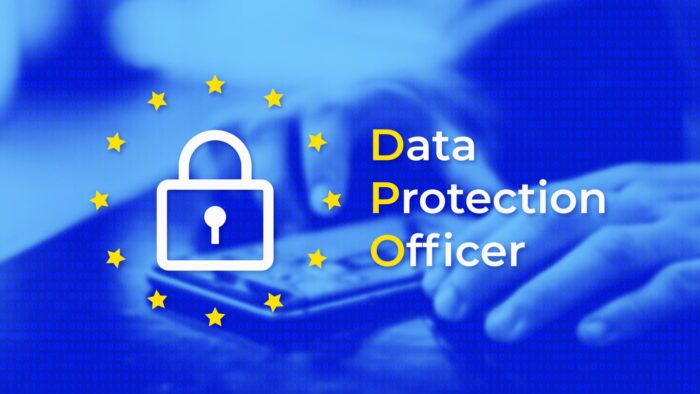
In an era where every click, like, and share leaves a digital trail, the protection of personal data has become a global imperative. Did you know that in just one minute on the internet, over 187 million emails are sent, 3.8 million Google searches are conducted, and more than 500,000 tweets are posted?
With such an overwhelming influx of data, the need for vigilant guardians of privacy has never been more pronounced. A Data Protection Officer (DPO), is a crucial figure tasked with ensuring that organizations handle personal data responsibly, ethically, and under stringent privacy regulations.
When data breaches can cost businesses millions and tarnish reputations, DPOs are the shield bearers of trust, bridging the gap between organizations, data subjects, and regulatory authorities.
As the demand for data security and privacy continues to soar, so do the opportunities for those who wish to become Data Protection Officers. In this guide, we will take you through the intricate steps of becoming a DPO, providing you with a roadmap to embark on a rewarding journey in this dynamic and ever-evolving field.
What is a Data Protection Officer and GDPR?

Before diving into the steps to become a Data Protection Officer, let’s understand their role and responsibilities. A DPO is a professional tasked with ensuring an organization’s compliance with data protection regulations, such as the General Data Protection Regulation (GDPR) in Europe. They are responsible for monitoring data processing activities, providing guidance on data protection, and serving as a point of contact between the organization, data subjects, and regulatory authorities.
GDPR is often heralded as “the most stringent privacy and security regulation globally.” It imposes rigorous data privacy requirements and obligations on organizations that deal with or collect data on individuals within the European Union (EU). Failure to adhere to these regulations and violations of data privacy can lead to substantial financial penalties.
One of the stipulations of the GDPR is that organizations must designate an employee responsible for overseeing GDPR compliance. This individual is commonly referred to as a Data Protection Officer (DPO). According to the regulation itself, “The Data Protection Officer, or DPO, is the central figure in an organization’s GDPR compliance efforts and must possess in-depth expertise in data protection law and practices.”
Steps to Become a Data Protection Officer

Step 1: Obtain the Necessary Education
A solid educational foundation is essential for aspiring Data Protection Officers. To get started, consider pursuing a bachelor’s degree in a related field, such as cybersecurity, information technology, or data science. You can also opt for specialized programs in data protection or privacy management, which are increasingly available at various institutions.
Step 2: Gain Practical Experience
To stand out in the competitive job market, it’s crucial to gain practical experience. Consider internships, part-time roles, or entry-level positions in fields related to data protection, such as cybersecurity, compliance, or privacy management. This hands-on experience will provide you with the knowledge and skills needed for the role of a Data Protection Officer.
Step 3: Develop Technical Skills
DPOs need a solid technical skill set. Familiarize yourself with data security tools, privacy management software, and risk assessment methodologies. Acquiring certifications like the GDPR – Certified Data Protection Officer or Certified Information Privacy Professional (CIPP) can significantly enhance your qualifications.
Step 4: Understand Data Protection Regulations

A Data Protection Officer must have a deep understanding of data protection regulations relevant to their jurisdiction. GDPR is a significant framework, but there are many others, such as the California Consumer Privacy Act (CCPA) in the United States. Stay updated on the evolving legal landscape to effectively guide your organization in compliance.
Step 5: Develop Soft Skills
Effective communication and interpersonal skills are vital for a DPO. You will need to collaborate with various departments within your organization, as well as communicate with data subjects and regulatory authorities. Strong analytical and problem-solving abilities are also essential to navigate complex data protection challenges.
Step 6: Seek Employment
Once you have the necessary education, experience, and certifications, it’s time to start your job search. DPO positions are in demand across various industries, including finance, healthcare, and technology. Tailor your resume to highlight your relevant skills and experience.
Becoming a Data Protection Officer is an exciting and rewarding career path, with a growing need for skilled professionals in today’s data-centric world. By following the steps outlined in this guide, you can embark on your journey to becoming a DPO and make a significant impact in safeguarding data and ensuring compliance with data protection regulations. Stay committed to continuous learning and adaptability, as the field of data protection is ever-evolving, and your role as a DPO will continue to be of critical importance in the years to come. Good luck on your path to becoming a Data Protection Officer!








